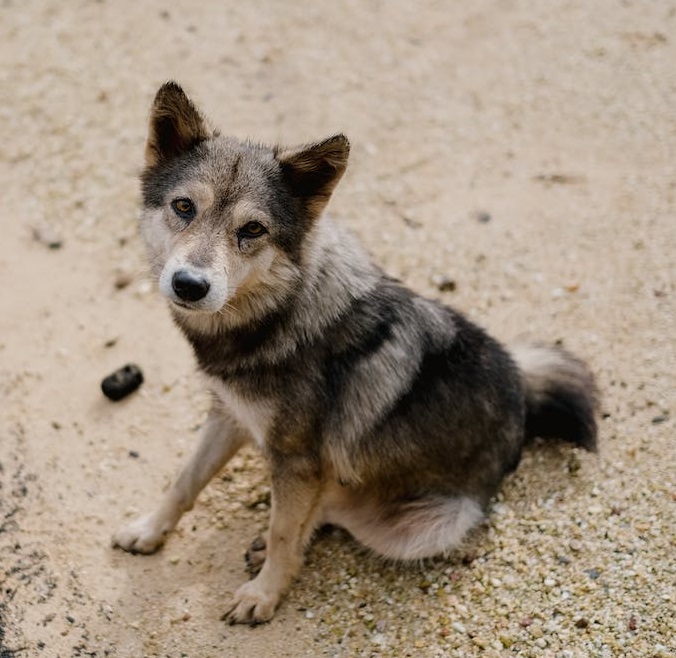Why do dogs eat poop?
Pet owners may find the behavior known as coprophagia puzzling and concerning, yet understanding its possible causes will allow us to address the situation more effectively, helping our furry companions remain healthy and content.
One reason dogs eat poop could be nutritional deficiencies. Some pets might not receive all their required vitamins from food sources alone, leading them to search out alternative sources – even undigested food particles in feces may contain nutrients with nutritional value that haven’t yet been digested!
Coprophagy may also result from instinctual behaviors. Mother dogs in the wild feed their puppies’ waste into their den to keep it clean, thus deterring predators and keeping the den clean – this habit may have carried over into domesticated breeds even though there’s no practical application in our homes.
Coprophagia may also stem from behavioral factors. Dogs may engage in coprophagia as an outlet to relieve boredom or anxiety or gain attention from their owners; the act itself may even provide stimulation that relieves stress while simultaneously garnering some sort of negative attention – all factors which must be considered when trying to understand this behavior in dogs.
Some dogs may develop coprophagia due to medical issues. Malabsorption, pancreatic insufficiency or digestive disorders may hinder digestion and absorption of nutrients; as a result, dogs may seek alternative sources of nutrition like their own waste as an alternate food source – even eating it directly!
Coprophagia may not be common among dogs, yet it remains essential that this behavior be addressed and discouraged in order to keep our pups safe from health hazards posed by coprophagia. Not only is the behavior unpleasant but consuming feces can expose dogs to parasites, bacteria, and pathogens which increase the chance of infections or digestive distress and other GI problems in turn affecting health as a whole.
If your dog engages in coprophagia, it’s crucial that they see a veterinarian to get properly assessed and treated as soon as possible. They will evaluate overall health conditions that could be contributing to such behaviour – an exam and appropriate diagnostic tests will allow your veterinarian to detect and address potential health concerns quickly and effectively.
Other than professional care, there are steps you can take to discourage coprophagia in your dog. Making sure their diet provides all essential vitamins and nutrients can reduce any desire they might have to seek feces for nutrition – high quality dog food meeting their dietary requirements is therefore vitally important.
Maintaining a clean environment is paramount in managing coprophagia in dogs. Swiftly collecting and disposing of waste reduces opportunities for your canine companion to engage in coprophagy behavior. Cleaning their living area regularly and providing them with their own bathroom area helps encourage good hygiene habits among your pup.
Mental and physical stimulation is another essential step toward discouraging coprophagia in dogs. Mentally and physically stimulating their canines reduces their chances of engaging in undesirable behavior such as eating their waste. Regular exercises, interactive toys, or training sessions will keep your pup happy and contented!
If coprophagia in your dog can be linked to behavioral issues, treating its root cause should be your top priority. Bored and anxious dogs may turn destructive or compulsive behaviors – like coprophagia – into destructive or compulsive ones, like coprophagia. Spending quality time with them while providing appropriate toys and activities as well as seeking professional training from professional dog trainers/behaviorists may prove immensely helpful in alleviating such behavioral problems.
Consistency and positive reinforcement are keys to discouraging coprophagia in dogs. Praise, treats or playtime rewards should they engage in coprophagia; but avoid punishment or scolding; this helps your canine understand their expectations of behavior.
Deterrents may help prevent coprophagia. There are various commercial products on the market which can help make copro unappetizing for dogs; typically these contain strong flavors or scents dogs find repellant. Always consult your veterinarian first when considering these solutions as to ensure their suitability for your canine companion.
Coprophagia may be difficult to address, but with patience and consistency along with targeted actions it can be eliminated from daily practice. Understanding its causes – nutritional deficiencies, instinctual behaviours, behavioral problems or medical conditions – is the first step toward effectively controlling or preventing coprophagia. Through providing balanced diets, keeping environments clean, addressing any underlying behavioral or medical conditions and offering mental and physical stimulation we can help our dogs overcome coprophagia behavior and enjoy healthier and happier lives. If your concerns regarding coprophagia extend to your pet please reach out to a veterinarian who will offer professional guidance tailored specifically towards meeting its unique requirements.

